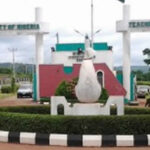
She explained that diversification would focus on areas which Nigeria has comparative and competitive advantages such as oil palm sector.
The minister gave the assurance on Wednesday while addressing participants during a one-day meeting to harvest the inputs of stakeholders in the oil palm value chain on the need to revitalise and reposition the sector in Akwa Ibom State
Uzoka-Ante, represented by the ministry’s Principal Commercial Officer, Commodity and Export Department, Mr. Adesanya Adebayo, affirmed that in Nigeria, 80 per cent of production comes from dispersed smallholders who harvest semi-wild plants and use manual processing techniques.
“Several million smallholders are spread over an estimated area ranging from 1.65 million hectares to 2.4 million hectares and a maximum of 3 million hectares. Also, 90% of palm oil is consumed by food industry and the remaining 10% is used by the non-food industry. Noodles industry alone consumes 72,000 MT of imported palm oil, a demand that leading domestic palm oil producers are yet to meet.
“This is because Nigeria today produces only 1.7% of the world’s consumption of palm oil which is insufficient to meet its domestic consumption which stands at 2.7%.5. However, Nigeria oil palm sector has been a key driver of economic growth, providing employment opportunities, generating revenue, and contributing significantly to our prosperity.
“To sustain and enhance this legacy, we must recognize the challenges that lie ahead and collectively work towards a vision that ensures the continued success of our oil palm industry.”The minister said
Similarly, the President, National Palm Produce Association of Nigeria, NPPAN, Amb. Alphonsus Inyang called for collaboration with the Federal Ministry in the organization’s efforts to produce 50 millionaires in each state of the country through Oil Palm Produce.
The NPPAN President said his group was also embarking on domesticating Millionaires Club in rural communities through Palm Oil Produce and vowed to fight adulteration of palm oil through the use of chemicals by middlemen in the business.
Inyang advocated for the creation of palm oil market in collaboration with the Federal Ministry and State Government, while calling on the Federal Government to declare a public holiday for Oil Palm Tree plantation in the country as planting of masquerade trees is of no economic important to the country.
He said, “Hon. Minister, we want to plant palm trees in the country across North, South, East and West let your Ministry work with us, our target is to plant 37,500 Palm trees per year, 250,000 Hectares Per year, 5million households, 10million USD, GDP, 28 States involved and one family 20 Palm trees”.
Speaking further, Inyang, while welcoming inputs from all stakeholders in the Oil Palm Value Chain on the need to revitalize and reposition the sector said palm trees remained African cultural and traditional plant as the first name for the plant is West African Swam Crop.
High points of the occasion were the inspection of Palm Processing Mills, Farms, including the Dakkada Palm Kernel Mill at Ibesikpo LGA, Malibe Farms in Uyo LGA as well as inputs presentation from numerous stakeholders at the event including that of the Chairman, Agro Ideas Ltd, Mr. Nsidebe Eduok among others.





